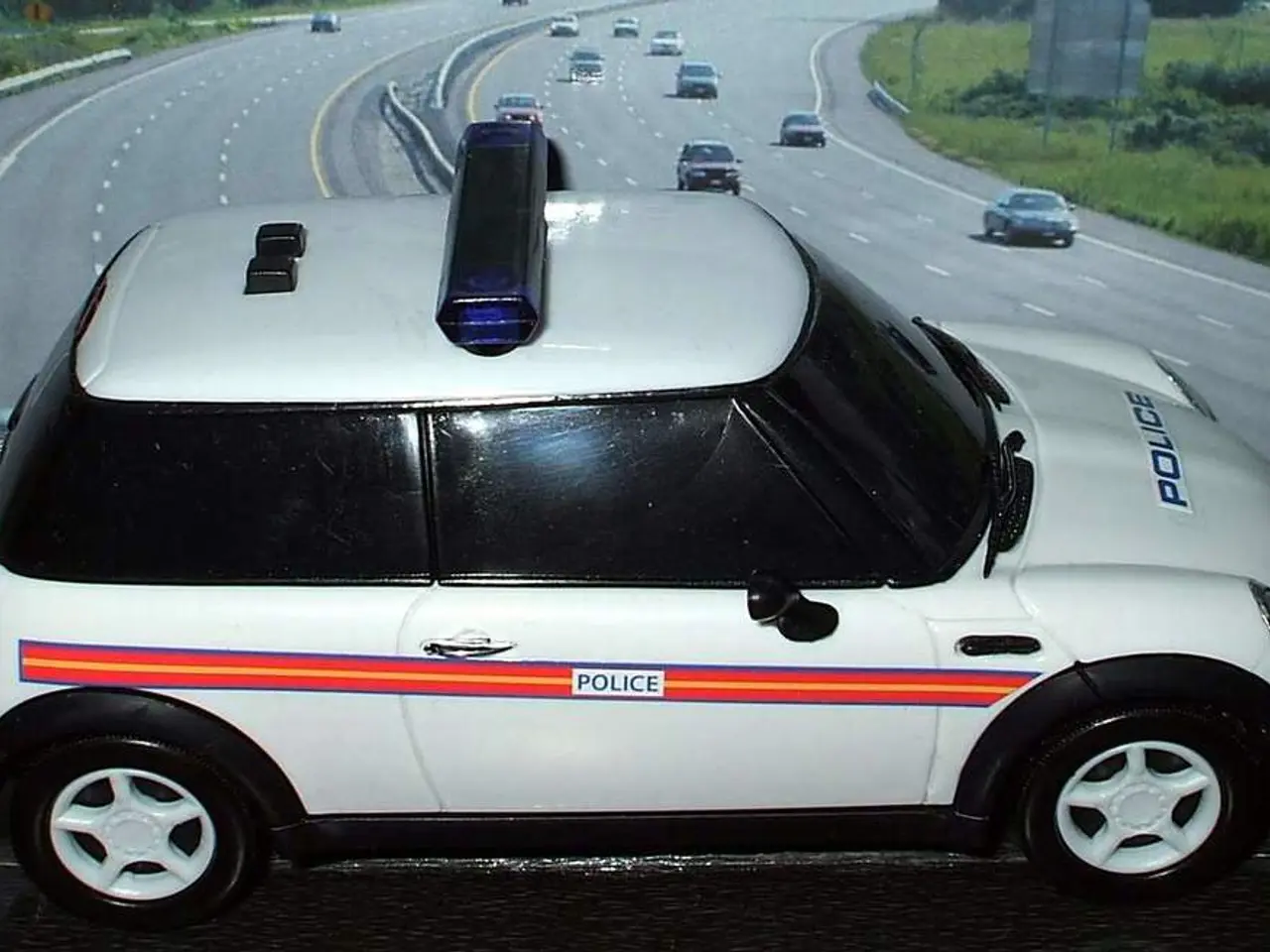Trump's DC Police Department Takeover Faces Legal Challenge Amidst Clampdown: The Attorney General of Washington, DC has filed a lawsuit, alleging that Donald Trump is overstepping his legal bounds in his control of the local police department.
In an unprecedented move, President Donald Trump has announced his intention to take control of the District of Columbia Metropolitan Police Department, citing rising crime rates as justification. However, this decision has sparked a legal dispute between the White House and DC's local government, raising significant constitutional and legal questions.
The United States capital, Washington DC, has filed a lawsuit challenging the president's takeover. DC's Attorney General, Brian Schwalb, has urged a judge to rule that control of the department remains in the city's hands. Mayor Muriel Bowser has also pushed back, stating that there is no statute that conveys the District's personnel authority to a federal official.
The legal implications of this dispute are far-reaching. The federal government's attempt to command DC's police undermines the established local governance, raising separation of powers issues and questions about the District's limited autonomy under federal law. The legality of invoking emergency powers for a prolonged federal police takeover is also contested, as a temporary surge in crime does not typically constitute the kind of emergency justifying such federal intervention.
Moreover, the deployment of National Guard troops and federal agents for law enforcement raises questions about potential violations of the Posse Comitatus Act, which limits military involvement in civilian policing. Although the D.C. National Guard is under federal control, the extent of its law enforcement role may test legal boundaries.
The influx of federal agents operating with limited local oversight also prompts worries about excessive or aggressive policing tactics without proper checks and balances, compared to local police accountable to city officials. President Trump has cited increased arrests as evidence of effectiveness, but experts and officials caution that higher arrest numbers do not straightforwardly equate to improved public safety.
The dispute also underscores the political tensions between the White House and DC's local government, complicating law enforcement and legal authority. DEA agents have been patrolling popular nightlife areas like The Wharf, while Secret Service officers have been seen in the Foggy Bottom neighborhood. Department of Homeland Security police have been present outside Nationals Park during a baseball game.
Residents of Washington, DC, have expressed concern about the escalated show of force from federal forces. Volunteers have helped homeless people leave longstanding encampments, but the locations of their relocation were often unclear. National Guard troops have been observed at various landmarks, train stations, and busy traffic areas across the city.
As the deadline approaches, President Trump has stated that he will re-evaluate his actions. An emergency restraining order has been sought in the lawsuit. The new emergency head of the department is the Drug Enforcement Administration (DEA) chief, Terry Cole, appointed by the Attorney General, Pam Bondi.
In this complex legal battle, the balance of federal and local authority in DC, the proper use of emergency powers, and the limits on federal intervention in local policing are at stake. The outcome could set a precedent for future administrations and the relationship between the federal government and local jurisdictions.
[1] Constitutional and Statutory Conflicts: The Legal Battle Over Trump's Takeover of Washington DC's Police Department. (2020). Retrieved from https://www.law.cornell.edu/constitution/trump_dc_police [2] Trump's Takeover of Washington DC's Police Department: An Overview. (2020). Retrieved from https://www.brookings.edu/research/trumps-takeover-of-washington-dc-s-police-department-an-overview/
- The legal dispute between the White House and DC's local government over President Trump's takeover of the District of Columbia Metropolitan Police Department is raising concerns about the balance of federal and local authority, particularly in light of constitutional and statutory conflicts.
- In the midst of this legal battle, questions about the legality of invoking emergency powers for a prolonged federal police takeover are being contested, as this move does not typically constitute the kind of emergency justifying such intervention.
- The deployment of federal agents in Washington DC for law enforcement purposes has escalated general news regarding crime and justice, and prompted questions about potential violations of the Posse Comitatus Act, limited military involvement in civilian policing, and excessive policing tactics without proper checks and balances.





